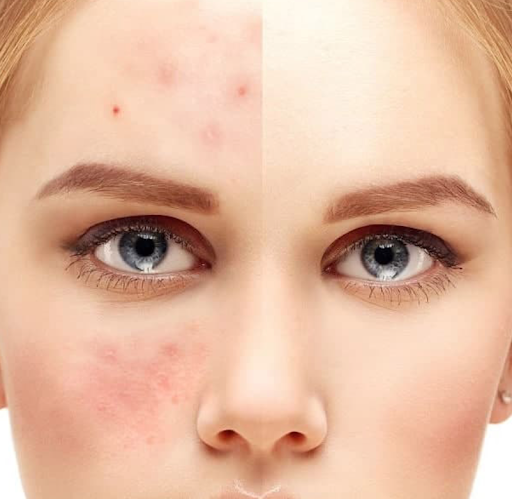Are you tired of waking up to unexpected blemishes and feeling self-conscious about your skin? Fret no more! Medical-grade skincare is here to revolutionize your acne treatment and transform your complexion into a flawless masterpiece.
In the skincare world, there’s nothing quite as disheartening as the relentless battle against acne. Those pesky pimples, blackheads, and whiteheads can leave you feeling self-conscious, frustrated, and yearning for a clear, radiant complexion. While over-the-counter products may offer fleeting relief, they often fail to address the root cause of your acne, leaving you trapped in a cycle of breakouts and disappointment.
But fear not, for there exists a beacon of hope in the realm of skincare – medical-grade skincare. Acne, the bane of many teenagers and even some adults, can leave you feeling self-conscious and frustrated. While over-the-counter products may provide temporary relief, they often fail to address the root cause of your breakouts. For those seeking a more effective and lasting solution, medical-grade skincare emerges as a beacon of hope, offering a comprehensive approach to tackling acne.
Unveiling the Science Behind Medical-Grade Skincare
Medical-grade skincare products are not your average drugstore finds. They are formulated with high-potency ingredients that have undergone rigorous clinical testing to ensure their safety and efficacy. These products target the underlying causes of acne, including:
- Excess Oil Production: Medical-grade cleansers and moisturizers help regulate sebum production, preventing your skin from becoming overly oily, a breeding ground for acne-causing bacteria.
- Clogged Pores: Exfoliating agents, such as alpha hydroxy acids (AHAs) and beta hydroxy acids (BHAs), work to unclog pores, removing trapped oil and bacteria that contribute to breakouts.
- Inflammation: Anti-inflammatory ingredients, such as niacinamide and azelaic acid, soothe irritated skin and reduce redness, promoting healing and preventing scarring.
- Bacterial Overgrowth: Benzoyl peroxide and other antimicrobials directly target acne-causing bacteria, reducing their proliferation and preventing new breakouts.
Hormonal Imbalances: Topical retinoids, such as tretinoin and adapalene, can help regulate hormonal imbalances that contribute to acne, particularly in women.
Benefits of Medical-Grade Skincare for Acne
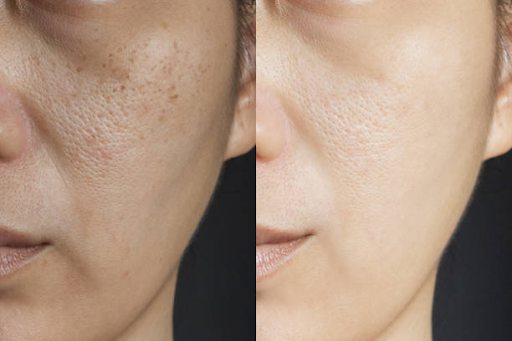
Medical-grade skincare offers a multitude of benefits for acne management, including:
- Effective Treatment of Acne: Potent ingredients effectively clear existing breakouts and prevent the formation of new ones.
- Tailored Treatment Plans: Personalized regimens address individual skin types and acne severity.
- Restoration of Skin Health: Promotes healthy cell turnover, reduces inflammation, and prevents scarring.
- Enhanced Skin Texture: Improves skin texture and reduces the appearance of fine lines and wrinkles.
- Improved Self-Esteem and Confidence: Clear skin boosts self-confidence and reduces self-consciousness.
- Long-Term Clear Skin: Addresses underlying causes, prevents recurrent breakouts, and promotes long-term skin health.
Who Should Consider Medical-Grade Skincare for Acne?
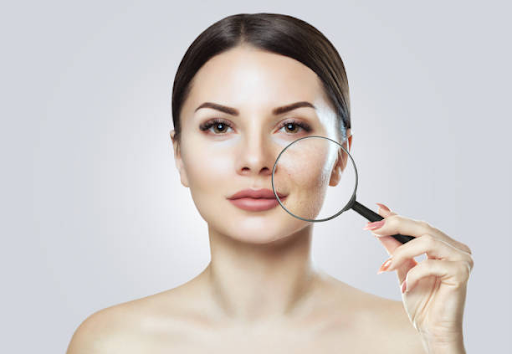
Medical-grade skincare is a suitable option for individuals with:
- Moderate to Severe Acne: Over-the-counter products may not be effective for severe cases.
- Persistent Breakouts: Ongoing struggles with recurrent breakouts despite using over-the-counter products.
- Acne Scars: Desire to minimize the appearance of acne scars and prevent further scarring.
- Skin Sensitivity: Sensitive skin that reacts to over-the-counter products.
- Underlying Skin Concerns: Desire to address other skin concerns, such as fine lines, wrinkles, or uneven skin tone, alongside acne treatment.
What are the ingredients in medical-grade skincare products?
Medical-grade skincare products contain a variety of ingredients that have been clinically tested to be safe and effective for treating acne. Some of the most common ingredients include:
- Benzoyl peroxide: Benzoyl peroxide is an antimicrobial agent that kills acne-causing bacteria.
- Salicylic acid: Salicylic acid is a beta-hydroxy acid (BHA) that helps to unclog pores and reduce inflammation.
- Azelaic acid: Azelaic acid is an anti-inflammatory agent that can also help to lighten acne scars.
- Retinoids: Retinoids are a class of vitamin A derivatives that help to regulate cell turnover and reduce inflammation.
Treatments for Acne
Several other treatments can be used for acne, including:
- Light therapy: Light therapy uses blue or red light to kill acne-causing bacteria. It is a safe and effective treatment for mild-to-moderate acne.
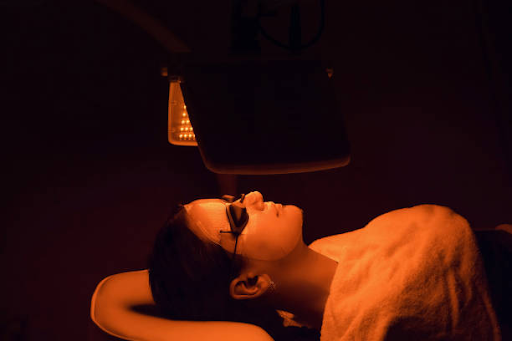
- Chemical peels: Chemical peels use acids to remove the top layer of skin. They can be used to treat acne scars and improve the overall appearance of the skin.
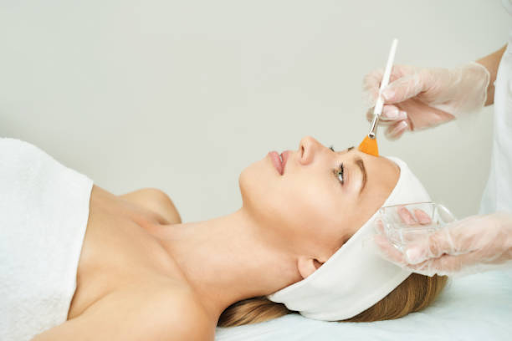
- Microdermabrasion: Microdermabrasion is a procedure that uses tiny crystals to exfoliate the skin. It can be used to treat mild to moderate acne and improve the overall texture of the skin.
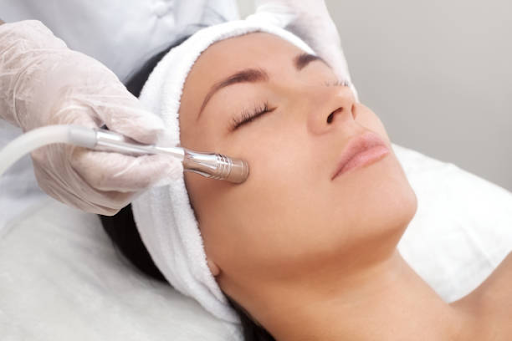
Add Your Heading Text Here
There are several things you can do to prevent acne, including.
- Wash your face twice a day with a mild cleanser.
- Using an oil-free moisturizer.
- Avoid picking at your skin.
- Removing makeup before going to bed.
- Keeping your hair clean and out of your face
- Eating a healthy diet.
- Managing stress levels
Gangnam Theme Dermatology Booking Information
The clinic can be found at 423 Gangnam-daero, Seocho-gu, Hanseung Building, 7th Floor, Seoul, South Korea. To reach out directly, dial +821094839974 on WhatsApp and Kakao. Sending a message to Gangnam Theme Dermatology will allow you to talk about your concerns, make an appointment, or receive an online consultation. Send an email to [email protected]. You can also look through everything and ask questions on the Gangnam Theme Dermatology website by clicking this link: https://themedermatology.com/about-us/.

Here are some YouTube links from Gangnam Theme Dermatology
FAQs
The most common medical treatments for acne are topical treatments, which are applied directly to the skin. These treatments include benzoyl peroxide, salicylic acid, azelaic acid, and retinoids. Oral treatments, such as antibiotics and isotretinoin, are also sometimes used for moderate-to-severe acne.
It usually takes 4-6 weeks to see the full results of medical treatment for acne. However, you may see some improvement within the first few weeks.
Topical treatments are applied directly to the skin, while oral treatments are taken by mouth. Topical treatments are typically used for mild to moderate acne, while oral treatments are typically used for moderate to severe acne.
During your first appointment with a dermatologist for acne, they will likely ask you about your medical history, family history of acne, and current skincare routine. They will also examine your skin to assess the severity of your acne. Based on this information, they will recommend a treatment plan for you.
You should see a dermatologist for acne follow-ups every few months to monitor your progress and adjust your treatment plan as needed.
Conclusion
Medical treatment for acne offers a comprehensive and effective approach to managing this common skin condition. By addressing the underlying causes of acne, promoting skin health, and enhancing overall appearance, medical-grade skincare can transform the lives of individuals struggling with acne. With a dermatologist’s or skincare professional’s guidance, you can develop a personalized treatment plan that suits your unique needs and concerns. Remember, consistency and patience are key to achieving clear, healthy skin. Embrace the journey of transforming your complexion and unveiling your naturally radiant beauty.

